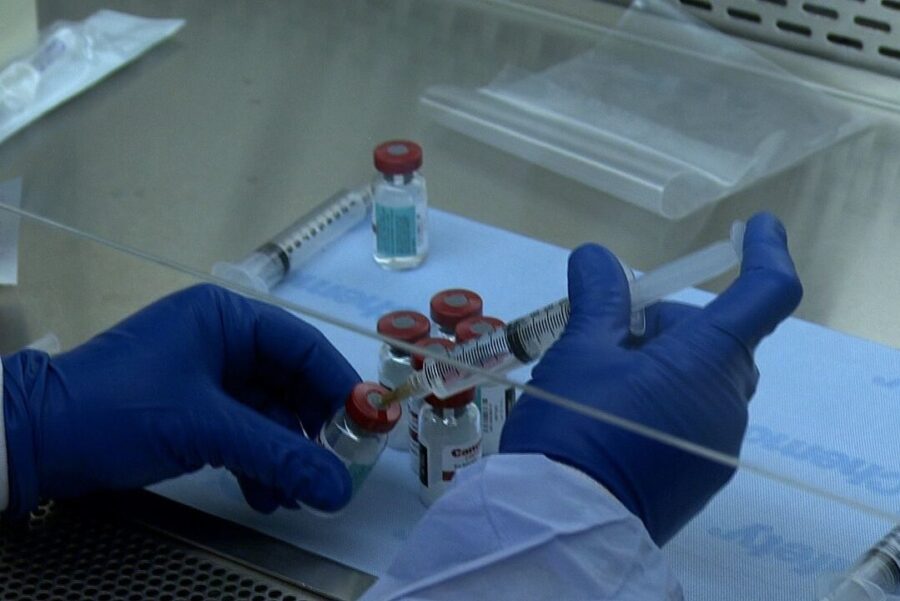Future Developments in mRNA Cancer Vaccines
Cancer vaccines based on mRNA in Less Than Ten Years
By John Elliott M.S.
Current Immunology News on mRNA Cancer Vaccines development
Good news about mRNA cancer vaccine developments. New developments in cancer treatments will be based on advances in immunology in the future. BioNTech of mRNA vaccines fame, is working on developing an alternative to traditional chemotherapy, surgery and radiation treatments. Concurrently, the company’s CEO Uğur Şahin talked about their research and development with mRNA for cancer vaccine development. They are creating and testing new tailored mRNA cancer vaccines. These new vaccines will be based on messenger RNA (mRNA). Basically, with testing these vaccines can be approved before the end of the decade. This will offer patients new hope in the battle against cancers.
Furthermore, BioNTech CEO envisions a future where the immune system is trained to recognize and target “highly personalized” cancer cells using mRNA technology. Significantly, with mRNA cancer vaccines development, Şahin anticipates the approval of the first mRNA-based cancer vaccine by 2030. Thus, we will soon see more mRNA cancer vaccine developments being published. The potential breakthrough comes as BioNTech experimental studies to obtain data for mRNA therapeutic treatments between 2025 and 2029.
Positive outcomes for cancer treatments
In similar fashion to the COVID vaccines, mRNA cancer vaccine developments are expecting positive outcomes. More studies are under way to develop mRNA Cancer Vaccines. Following this technology Uğur Şahin feels they can pave the way for the approval of mRNA cancer vaccines. They are expecting positive outcomes for cancer treatments. This would usher in a new era in cancer treatment in medical science. Currently chemotherapy destroys the immune system. BioNTech’s approach to cancer immunotherapy uses a method that leverages the body’s natural immune system to attack a patients cancer. Şahin emphasizes the significance of immunotherapies currently in clinical development for various cancers.
Create a technological framework
The goal, to cure not just control a patient’s cancer. BioNTech wants to have a long-term cure of cancer. BioNTech’s current work goal is to create a technological framework capable of swiftly mapping out all the necessary steps for cancer treatment using mRNA technology. This involves receiving a patient’s blood and tumor sample. Critically in the future, BioNTech will be able to deliver individualized cancer vaccines within a four week period or less to the patient!
Scaling the process
For this reason, the company aims to scale this process to benefit tens of thousands of patients annually. BioNTech gained immense success with its COVID-19 vaccine in the past two years. BioNTech has been strategically transitioning its expertise to develop mRNA Cancer vaccine technology. The Covid-19 shot, developed in collaboration with Pfizer, was the first mRNA drug approved for human use. The vaccine development against a new pathogen was very quick. The COVID-19 vaccine set a new record in medical history! The Pfizer-BioNTech Covid-19 vaccine has very high efficacy against severe disease and against symptomatic SARS-CoV-2 infection. BioNTech has started to test advanced cancer treatment with cancer vaccines. Currently, 32% of humans die from cancer. The current cancer treatments use surgery, poisons and radiation as cures. These treatments are very difficult on those who have cancer.
Uğur Şahin
Lastly about, Uğur Şahin, he received his doctorate in 1992 with a thesis on immunotherapy against tumor cells (bispecific monoclonal antibodies for the activation of cytostatic precursors on tumor cells).
Typical PR picture showing a researcher in a clean room setting. Beats a picture of two researchers with an outdated microscope wearing white lab coats and masks.

mRNA Cancer Vaccine lab photo of a clean room